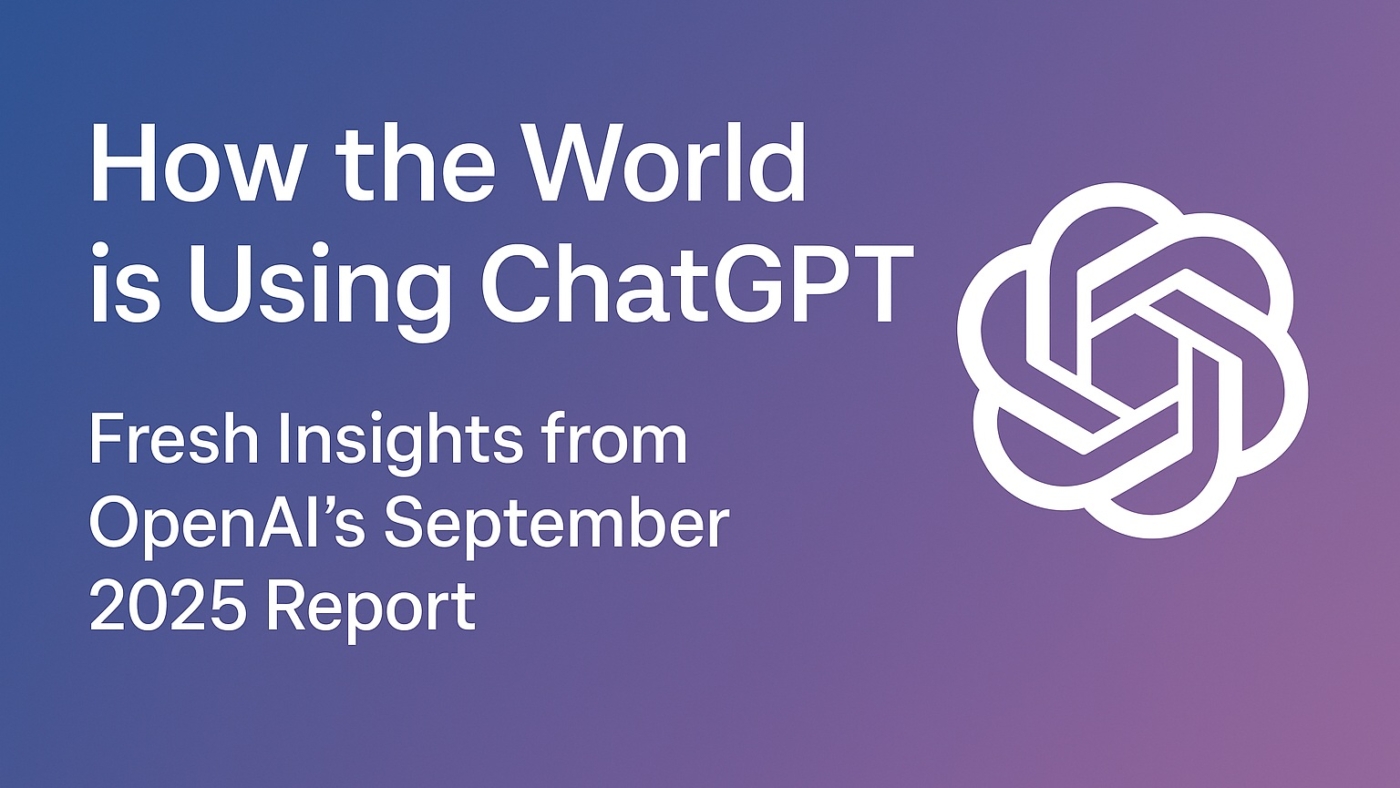OpenAI has just released a fascinating study with Harvard’s David Deming, analysing 1.5 million anonymised conversations to understand how people actually use ChatGPT. The findings give us a rare glimpse into how this technology is shaping work, learning, and creativity.
Key Insights
- Widening Adoption: Usage has broadened, with early gender gaps narrowing as adoption spreads across all demographics.
- Top Use Cases: The majority of people rely on ChatGPT for practical guidance, seeking information, and writing support.
- Work vs Non-Work: Around 30% of conversations are work-related (productivity, research, coding, consulting), while 70% are personal or non-work (learning, hobbies, creative writing, problem-solving).
- Scale of Use: OpenAI now reports hundreds of millions of weekly users. This shows how quickly AI assistants have become embedded in daily routines.

Why This Matters
These numbers highlight that ChatGPT is no longer just a novelty or experiment. It is a tool people trust for serious work, but also something they turn to for learning and personal growth.
For businesses, this means:
- Teams are already adopting AI in their workflows, often before formal company strategies are in place.
- Productivity and creativity gains are happening in real time.
- The opportunity now is to harness AI strategically, integrating it into systems, training, and processes in a structured way.
My Take
We are watching the early stages of a shift as big as the internet itself. The blend of 30% work + 70% personal use tells us AI is not confined to the office, it’s becoming a life tool. The organisations that thrive will be the ones that embrace this duality: empowering employees to use AI at work, while recognising it also enhances their personal learning and growth.
AI is here to stay, and these fresh insights give us a clear signal, it’s time to stop asking if AI will change how we work and live, and start asking how we will shape that change to our advantage.
#AI #ChatGPT #OpenAI #DigitalTransformation #FutureOfWork #AIInnovation #ArtificialIntelligence #Productivity #WorkplaceAI #TechTrends

